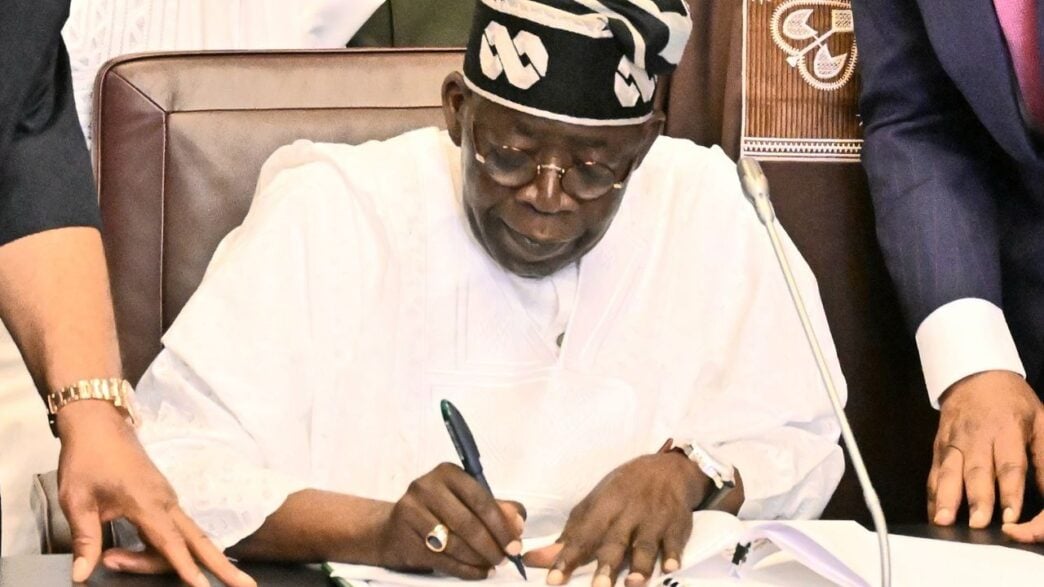News
FG Signs Data-Sharing Deal with 100+ Countries to Track Nigerian Remote Workers, Online Income Earners
Chairman of the Tax Reform Committee, Taiwo Oyedele, says Nigeria has entered agreements with over 100 countries to obtain financial data of remote workers…

- Chairman of the Tax Reform Committee, Taiwo Oyedele, says Nigeria has entered agreements with over 100 countries to obtain financial data of remote workers and citizens earning online, enabling stricter enforcement of tax compliance.
Chairman of the Presidential Committee on Fiscal Policy and Tax Reforms, Taiwo Oyedele, has disclosed that Nigeria has signed data-exchange agreements with over 100 countries to track the incomes of remote workers and online earners for tax enforcement.
Speaking on Wednesday during a webinar hosted by the National Orientation Agency titled “Simplifying Nigeria’s Tax System”, Oyedele addressed rising concerns about the taxation of digital workers, gig earners, and cross-border service providers.
He noted that every remote worker living in Nigeria is obligated to self-declare their income, regardless of which platform, company, or country the payment comes from.
According to him: “Whether you earn your money from Google or from a company in the Bahamas, you must declare your income yourself. If you fail to do so, the system will gather intelligence — especially when the money hits your bank account.”

Nigeria Partners 100+ Countries for Data Access
Oyedele explained that the government already has extensive visibility into international transactions coming into Nigeria and now receives automatic data from abroad under the Common Reporting Standard (CRS).
“We see the money coming into your dollar account,” he said.
“Nigeria has signed agreements with over 100 countries… from Dubai to the US, Canada, and the UK. We already have that information.”
He warned that those who fail to comply will face presumptive tax assessments once government data flags discrepancies.
DON’T MISS: BREAKING: Wike Bans Mobile Phones for Abuja Land Staff, Gives Reason
Engagement With Big Tech Companies
Oyedele recalled how Nigeria engaged global digital platforms three to four years ago regarding Value Added Tax (VAT) obligations, insisting online platforms operating in Nigeria must remit taxes like traditional businesses.
“If a physical store charges VAT when selling a phone, why should someone selling the same product online not charge VAT?” he asked.
He noted that Nigeria adopted a collaborative — not confrontational — approach, which led to successful agreements.
“Today, Nigeria is making billions of naira from these digital giants without fighting,” he added.
Legislative Errors: Turnover Threshold Mix-Up
Oyedele also addressed inconsistencies in the newly signed Nigeria Tax Administration Act, where one section lists a ₦100m turnover threshold while another states ₦50m.
“Yes, it was an error,” he confirmed, blaming typesetting mistakes during the gazetting of the law signed on June 26, 2025.
He said the committee spent three months trying to correct the gazette but eventually chose to move forward, pending a formal amendment.

“The correct minimum threshold for exemption is ₦100 million,” he said.
Capital Gains Tax (CGT) Reform Will Not Be Retroactive
A statement from the committee also clarified that the new Capital Gains Tax regime will not tax investment gains earned before 2026.
Under the proposed Nigeria Tax Act 2025, the CGT reform — effective January 1, 2026 — includes:
- A cost-basis reset
- A grandfathering clause
- Taxation only on new gains made after 2026
This ensures that historical investment profits remain unaffected.






















